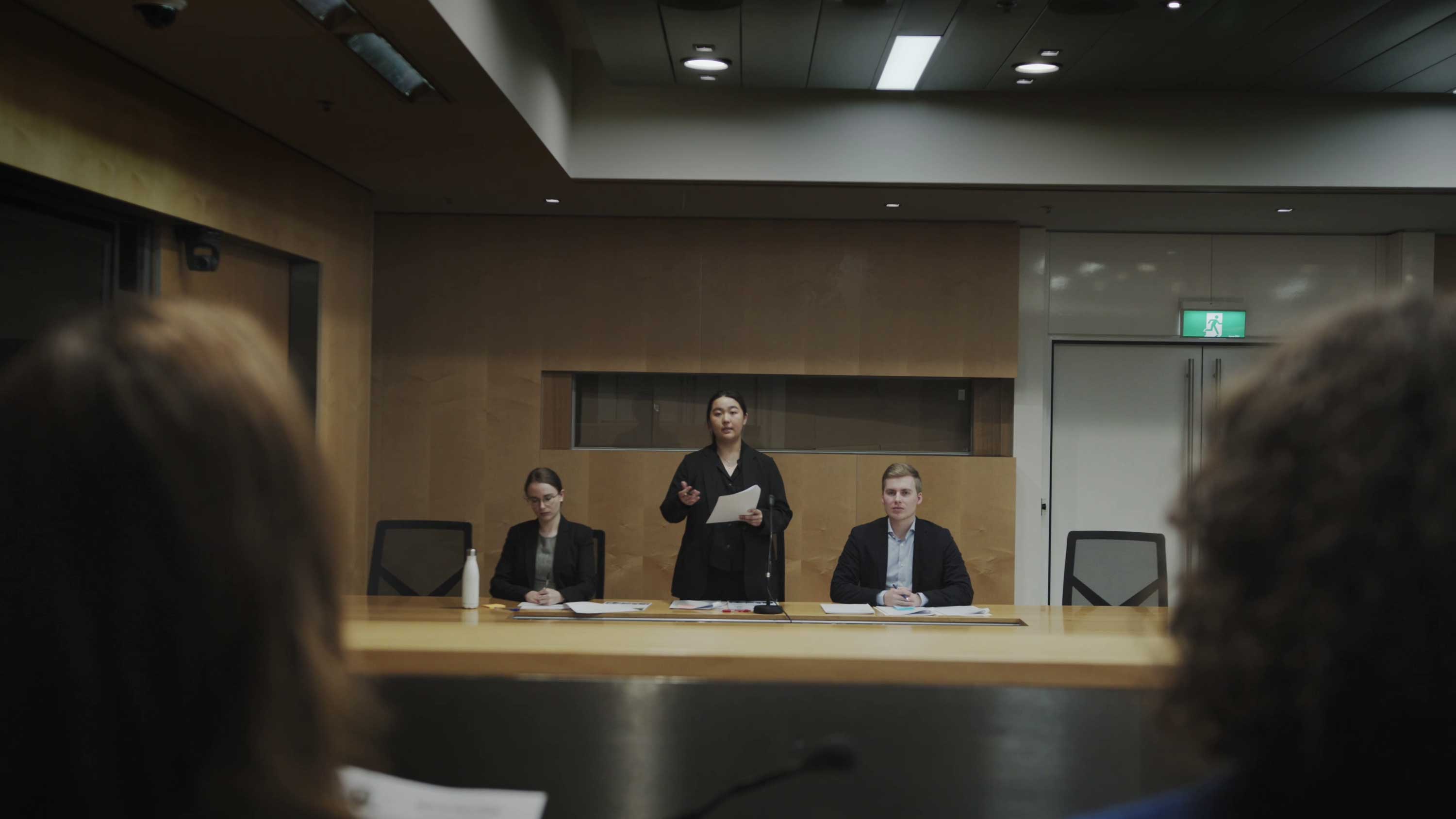First in her family to attend university, and with her heart set on becoming a lawyer, Tracie enrolled in the Bachelor of Arts, before progressing to the Melbourne Juris Doctor. It’s a study track that Tracie has found to open more career paths than she thought possible.
“From Year 12, I was very much set on doing law, but I still wanted to give myself a few years to look into different subjects and I ended up picking subjects from across multiple majors. Having that first year helped me round out which subjects I really liked and from second year, I knew that the Criminology major, and eventually the Juris Doctor, was the way to go.”
At Melbourne, a career in law begins with an undergraduate degree in any discipline. For Tracie, the Bachelor of Arts and its flexibility meant she could use the Melbourne curriculum to her advantage and study a range of subjects both relating to law, and from other disciplines before choosing a major.
This exposure to various disciplines means you can broaden your knowledge and develop transferable skills. You’ll be prepared to specialise later in your degree because you’ve got the experience and had time to explore the subjects relevant to you. Like Tracie, you’ll be able to make an informed decision about which study path aligns with your career goals.
If you want to study law at an undergraduate level, you’ll be able to build your legal knowledge through law breadth subjects. For Tracie, these subjects, along with her major in criminology, helped her prepare for the Juris Doctor through building her analytical and critical thinking skills to navigate legal briefs, understand legal language and experience different areas of law.
"I had an amazing tutor in criminology and our lectures took us through topics I’d never considered before – like cyber criminology. Another of my law breadth subjects was taught by Hillary Charlesworth, who now sits on the International Court of Justice. She could speak to us about what’s happening in the world, how things change and how we can make a difference through law."

This ability to combine undergraduate study with law means you can incorporate your knowledge from across disciplines. With a major in criminology, you might end up in criminal law; if you were to choose media and communications studies, you might find yourself working in copyright or entertainment law; and languages can give you insight into how international cultures and how different regions operate. Beginning your studies with an undergraduate degree gives you context for how law can be applied across industries, while giving you the opportunity to explore how many different study and career path options are out there.
Once she completed her undergraduate degree, Tracie applied for the Melbourne Juris Doctor (JD), a graduate law degree that has set a benchmark for legal education in Australia. Graduating with an undergraduate and graduate degree gives students like Tracie a higher level of qualification than a traditional double degree.
Shifting to the Juris Doctor can be a big change for many students, but with a summer intensive to help everyone settle into the community at Melbourne Law School, Tracie found that it helped prepare her to maximise her law studies.
“Law is based on theory but my shift in thinking came when I started to see how the law interacts with every part of our lives and how it can change. The intensive summer subject at the start of the JD meant I got to meet students from commerce, design, biomed – we were all starting this program together and could figure out how to navigate new cases every day and work through feedback on our assignments."
Since beginning her JD, Tracie has worked alongside her studies in internships between semesters. These internships are designed for people early in their career, so you might work parallel to your studies or immediately after graduation. This experience has influenced the subjects she’s taken throughout her JD and helped her see how skills in legal practice can apply to almost any industry. While her job title may not be ‘lawyer’, her skillset from the JD is critical, and relevant, across diverse industries.
“There’s so much more to law than just civil and criminal. My graduate role has been working as an analyst in the finance industry and I’ve really enjoyed seeing how the financial components of a corporation work, and I can see the contracts on big projects. These elements of my work use the skills from my JD in navigating complex work environments, contract law and collating information. I’ve actually changed some of my subjects during the semester to help me learn things that are relevant in my grad role. With the flexibility of the JD, you can study subjects abroad, take internships and see how law can cross over into other fields.”
With subjects designed to reflect what it would really be like to work in a law firm or a legal role, you’ll have opportunities to partner with organisations to put your skills into practice. In one subject, Tracie worked on a report with an industry partner that “was about how the law is making the lives of people better or worse and how companies can contract better. I can see how the law is working on a person-to-person level, rather than focusing on hypothetical facts.”
"I think the biggest influence on my time as a JD student has been the tutors, they’ve helped me along the way and this course lets you choose what you’re really interested in and build that interest. Your law degree might be different to someone else, but the flexibility means it’s catered to you."
